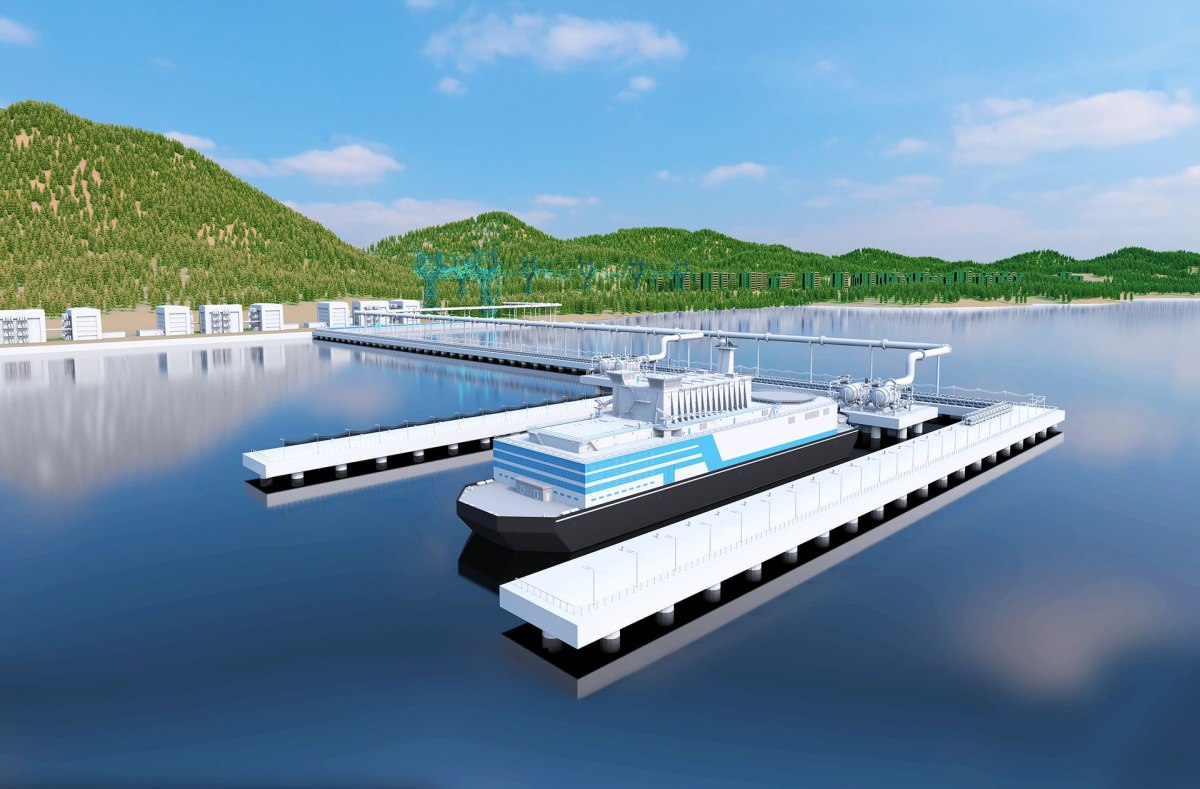 Rosatom has signed an agreement with TSS Group on the sidelines of the St Petersburg International Economic Forum (SPIEF), to develop an energy fleet for foreign markets based on floating NPPs (FNPPs) with RITM-200M reactors. TSS Group is Russia's largest developer and manufacturer of integrated solutions for well completion and energy supply to the oil and gas sector with an operating development strategy in the Middle East.
Rosatom has signed an agreement with TSS Group on the sidelines of the St Petersburg International Economic Forum (SPIEF), to develop an energy fleet for foreign markets based on floating NPPs (FNPPs) with RITM-200M reactors. TSS Group is Russia's largest developer and manufacturer of integrated solutions for well completion and energy supply to the oil and gas sector with an operating development strategy in the Middle East.
Rosatom and TSS Group will establish a joint venture, Energoflot, on a parity basis for the construction of a series of FNPPs with a capacity of at least 100 MWe and a service life of up to 60 years for foreign markets. The framework agreement is the basis for legally and financially binding documents, which will be signed later. Target markets include the countries of the Middle East, Southeast Asia, and Africa. Energoflot is expected to be put into operation in the period from 2029 to 2036.
Andrey Nikipelov, Rosatom, Deputy General Director for Mechanical Engineering & Industrial Solutions said that, since the commissioning of the world’s first FNPP, the Akademik Lomonosov, in 2019, state and commercial companies both in Russia and abroad had shown great interest in the project.
“Now we can offer the market a whole family of FNPPs - different in power and purpose, both Arctic and tropical versions. In addition to being environmentally friendly and stable operation, floating nuclear power units are able to provide energy independence - both from the main power grids, and in a broader sense - protection from the volatility of energy markets.” He added that FNPPs give companies and countries “the opportunity to obtain a predictable price for electricity for decades to come” offering “great commercial potential both in Russia and abroad”.
Sergey Velichko, Chairman of the Board of Directors of TSS Group, noted: ““The problem of ecology and low-carbon energy generation in particular is becoming more and more urgent in the world. Customers need a stable, economically predictable and sustainable source of energy. Today, such a unique combination of characteristics can be provided by a floating nuclear power unit.” He added that the modularity of the source, that is, the ability to increase power as quickly and flexibly as possible, allows the client to receive as much energy as necessary at a particular location and in what place. “Changes in the markets of the Middle East indicate the highest demand for such an energy source, we can clearly see this.” Moreover, there will be a growing demand for the “green” production of hydrogen, LNG, ammonia and methanol in the coming decades.
Earlier, in May, Rosatom Director General Alexey Likhachev, during a meeting of Russian President Vladimir Putin and other government members said that there was a demand for at least 15 floating power units. Currently, Rosatom is building four modernised FNPPs with RITM-200 reactor units that will supply power to the Baimskaya ore-mining zone in the Arctic.
Vyacheslav Ruksha, Rosatom Deputy Director General responsibnle for development of the Northern Sea Route, speaking on the sidelines of SPIEF, confirmed that there were specific orders for four FNPP units. “This project is proceeding, despite the fact that the timing for the establishment of the Baimsky Mining & Processing Plant (GOK) has shifted slightly.” Launch of the project was postponed from 2024 to 2027 to allow time for the project to be amended to use FNPPs as a power source.
A sea terminal for the shipment of products from the Baimsky GOK with a capacity of up to 2m tonnens a year is planned to be built at Cape Nagleynyn by 2025. This will enable exploitation of the world's largest undeveloped deposit of gold and copper. The total resource potential of the Baimskaya area is 23m tonnes of copper and 2,000 tonnes of gold. The project is licensed until 2033.
Image courtesy of Rosatom



